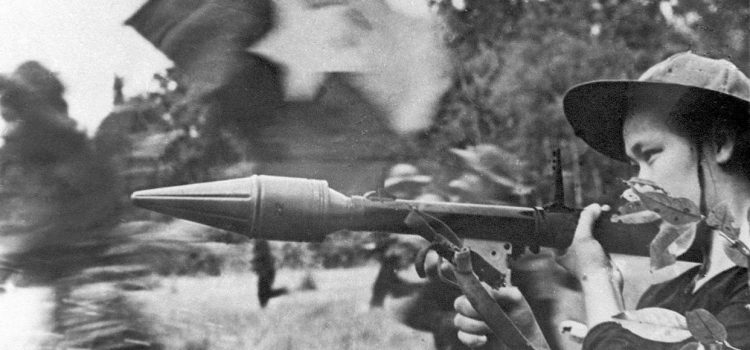
I do a lot of research for my writing, particularly the military thriller writing. Unlike some authors, who take long vacations as “research” (I can’t afford to, and so much of the on-the-ground stuff is extrapolated from Google Earth.), most of my research is directed toward history, current events, and warfare. I’ve got an ever-increasing military professional reading library, from which the following words of wisdom come:
“It is often said that guerrilla warfare is primitive. This generalization is dangerously misleading and true only in the technological sense. If one considers the picture as a whole, a paradox is immediately apparent, and the primitive form is understood to be in fact more sophisticated than nuclear war or atomic war or war as it was waged by conventional armies, navies, and air forces. Guerrilla war is not dependent for success on the efficient operation of complex mechanical devices, highly organized logistical systems, or the accuracy of electronic computers. It can be conducted in any terrain, in any climate, in any weather; in swamps, in mountains, in farmed fields. Its basic element is man, and man is more complex than any of his machines. He is endowed with intelligence, emotions, and will. Guerrilla warfare is therefore suffused with, and reflects, man’s admirable qualities as well as his less pleasant ones. While it is not always humane, it is human, which is more than can be said for the strategy of extinction.”
–Brigadier General Samuel B. Griffith, USMC (Ret), 1961
That quote comes from General Griffith’s introduction to Mao Zedong’s On Guerrilla Warfare. General Griffith served with the 1st Marine Raider Bn on Guadalcanal, then was XO for the 1st Raider Regiment on New Georgia. After the war, he served in a staff capacity in Qingdao, China, where he got to see much of the Chinese Civil War up close.
While I have posted about weapons and technology I feature in my books, I’ve tried to still make the point that war is not about the tools. War is about people. Carl von Clausewitz said that, “War therefore is an act of violence intended to compel our opponent to fulfill our will.”
I remember hearing a Marine Captain lecturing in 29 Palms, during the workup before my second deployment, about how combat was still about “taking the hill.” While it might be taken metaphorically, depending on the delivery, in this case, it definitely wasn’t. I turned to my Platoon Sergeant and asked, “So, how is it that physical terrain is suddenly the most important factor in an irregular war?” The sardonic raised eyebrow and faint shake of the head said all that needed to be said.
We have a tendency, as Americans, to view most problems as mechanical ones, with mechanical solutions. I believe this is an outgrowth of a number of factors, including our own technological supremacy since the Second World War. But true wisdom lies in recognizing the truth, and the truth is that that overly mechanistic viewpoint has become a weak point, a blind spot. And as many readers say that the Maelstrom Rising series is awfully close to the real world, the real-world events that have inspired it illustrate that.
War is not only a matter of how many guns, bombs, tanks, and personnel can be thrown at the enemy. Nor is it finding the one or two targets that can make an enemy crumble (That really hasn’t ever worked, with the possible exception of Desert Storm, which was a very, very strictly limited war.). Mao recognized that. General Griffith recognized it, as well. And many of our opponents today recognize it, and are actively taking advantage of our mechanistic blind spot.